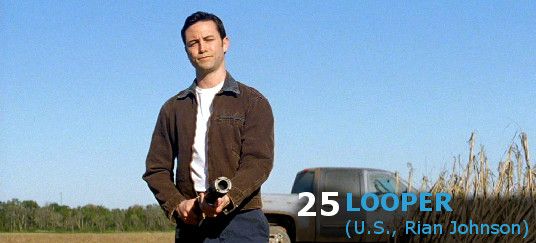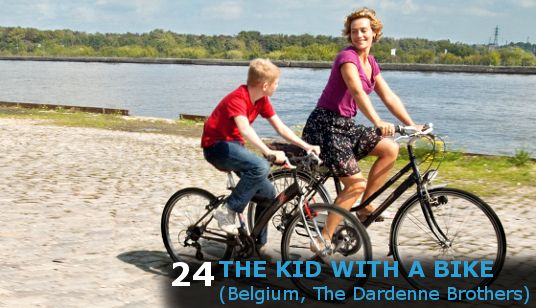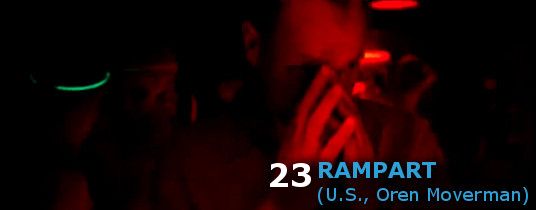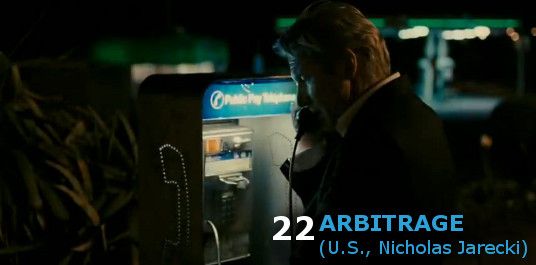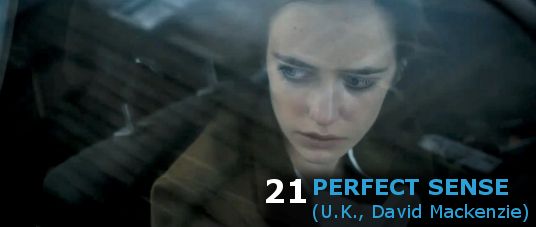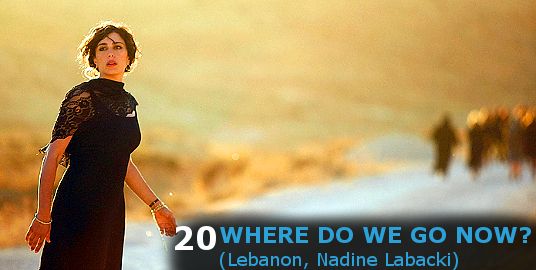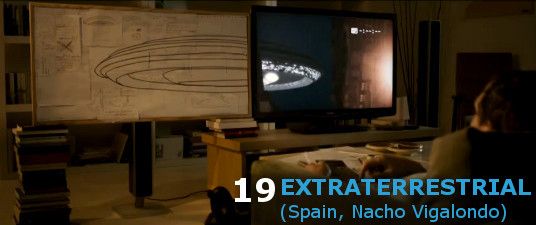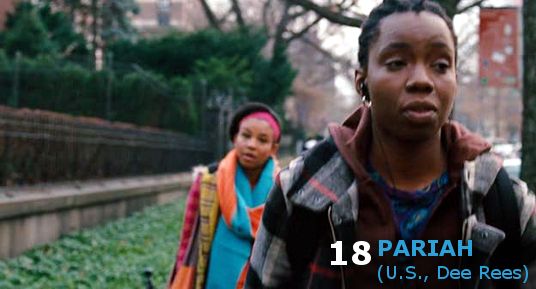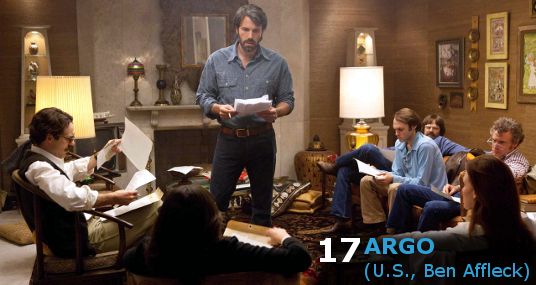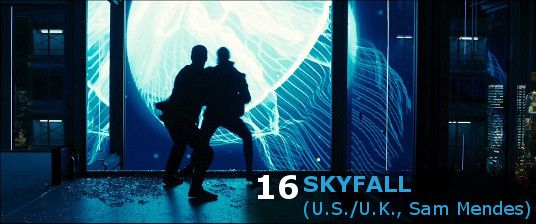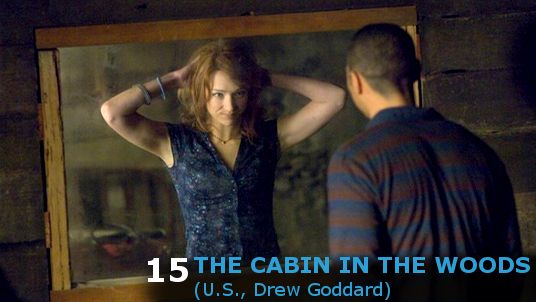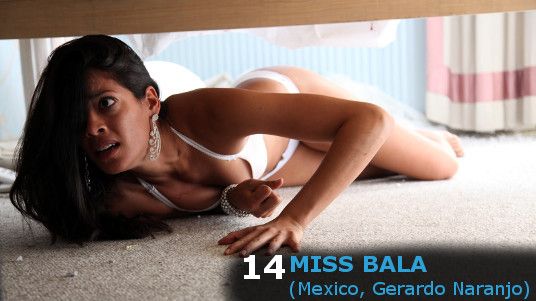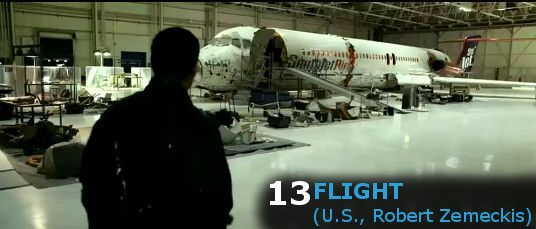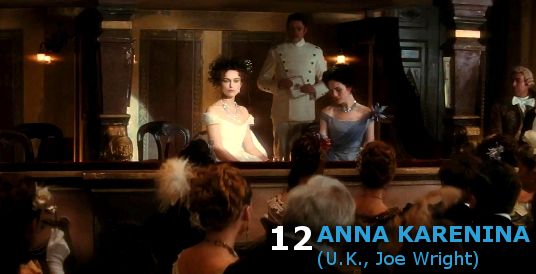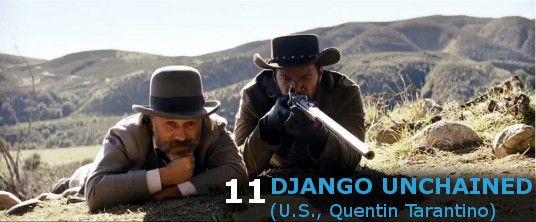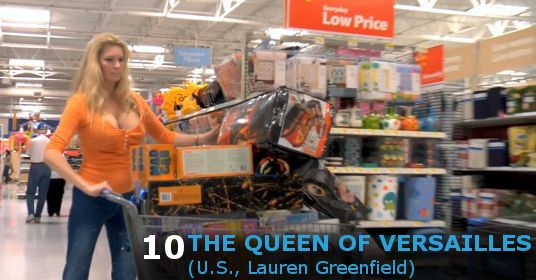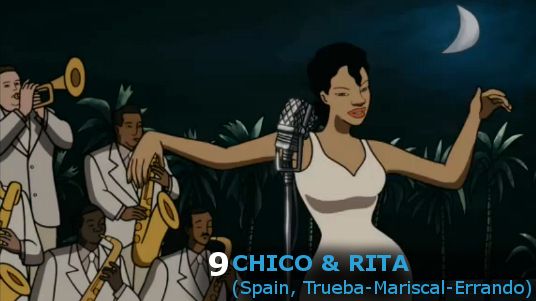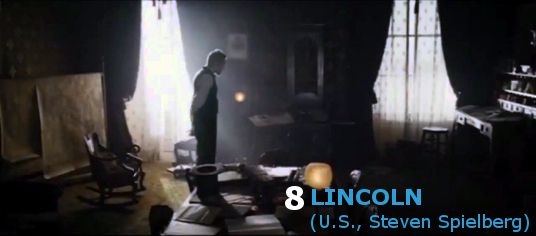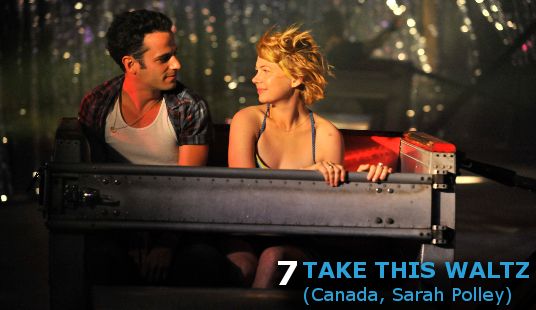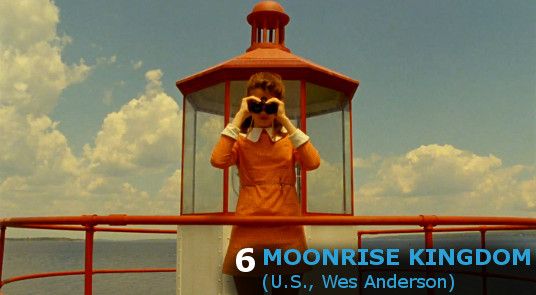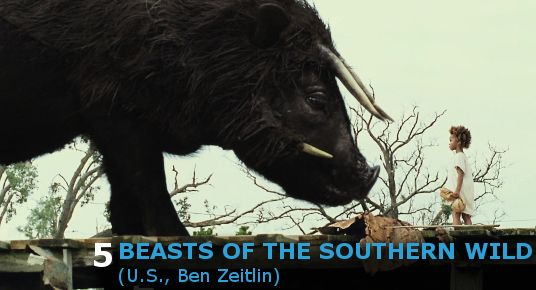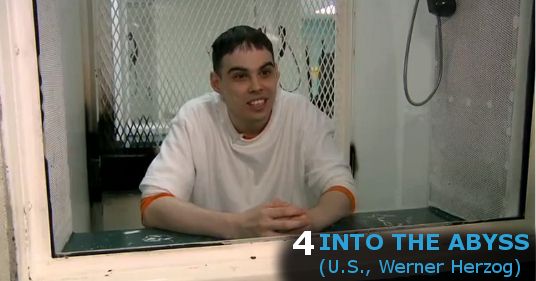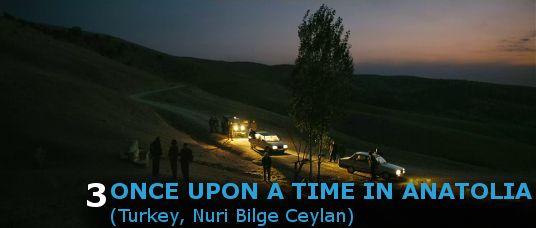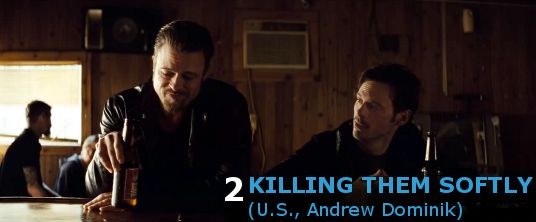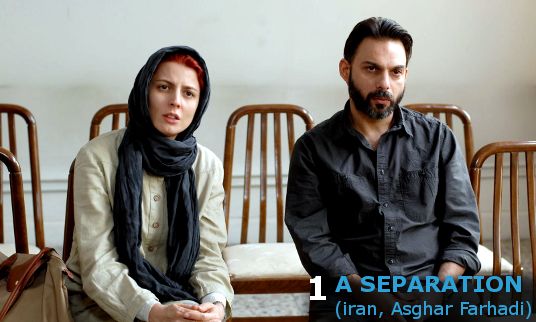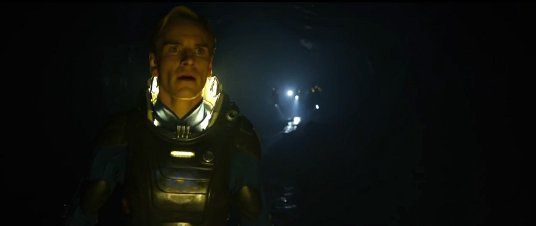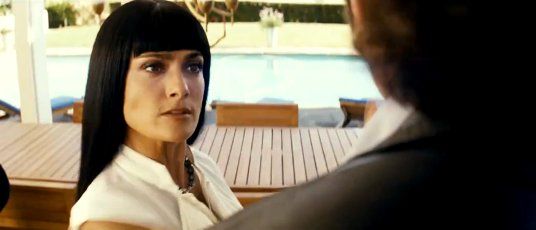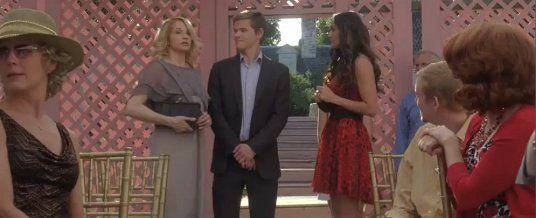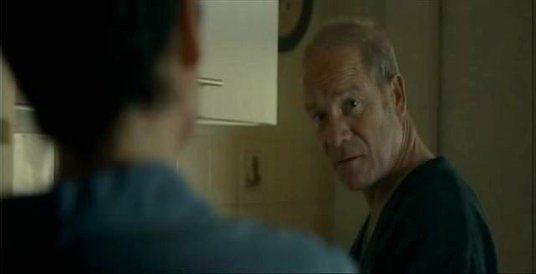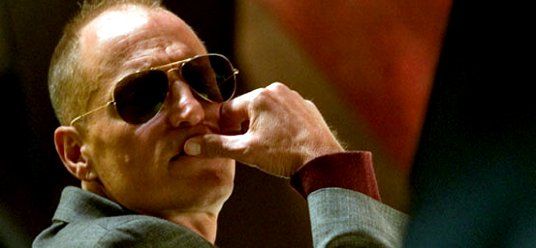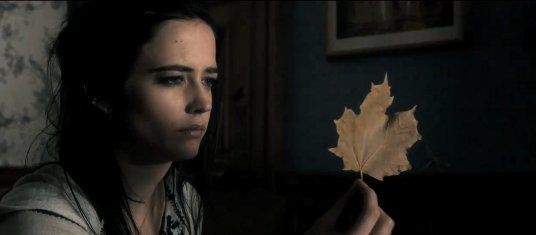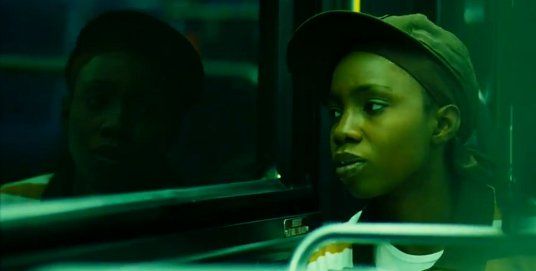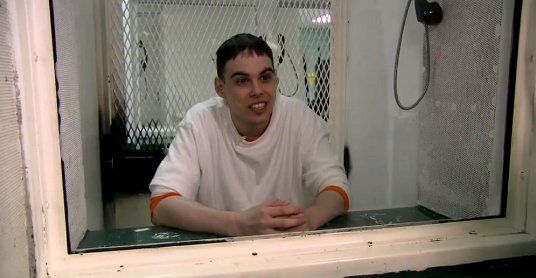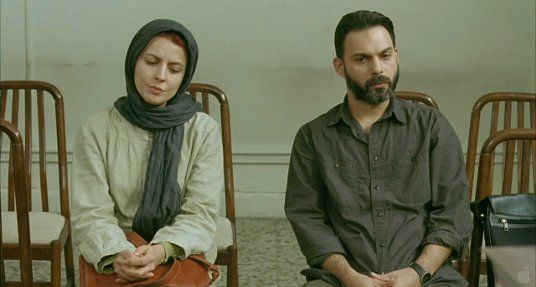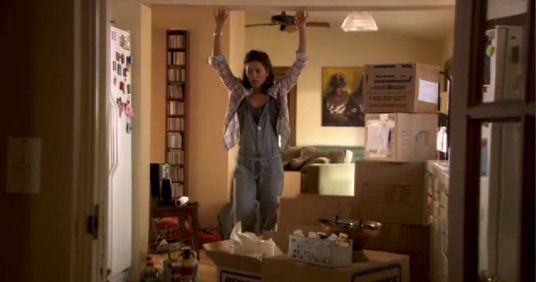BEST PICTURE
Into the Abyss (IFC Films)
Killing Them Softly (Weinstein Company)
Once Upon a Time in Anatolia (Cinema Guild)
A Separation (Sony Pictures Classics)
Zero Dark Thirty (Columbia Pictures)
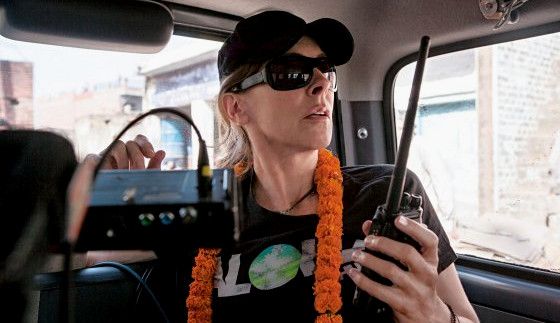
BEST DIRECTOR
Kathryn Bigelow (Zero Dark Thirty)
Nuri Bilge Ceylan (Once Upon a Time in Anatolia)
Asghar Farhadi (A Separation)
Werner Herzog (Into the Abyss)
Ben Zeitlin (Beasts of the Southern Wild)
The story of how Zero Dark Thirty came to be (and the fallout that resulted) is probably material enough for a movie itself. Bigelow took a lot of risks, both artistically and politically, in this examination of the people who killed Bin Laden. The risks pay off in a film that serves as a kind of instant history, a clear-eyed examination on 10 years of tremendous change, the ramifications of which we're still parsing.
Farhadi is working on the same level as Ozu. In A Separation, he uses ordinary tragedies and small gestures to reveal a lot about modern Iran and, more universally, the modern family. With Into the Abyss, Herzog creates a wrenching yet unaffected examination of capital punishment in America. Ceylan exhibits a magnificent understanding of his characters and their world in Once Upon a Time in Anatolia. Zeitlin, meanwhile, is a master of atmosphere, recreating a little of the magic and drama of childhood.
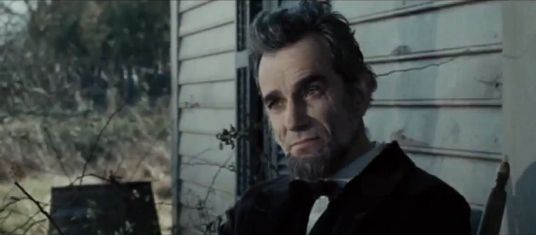
BEST ACTOR IN A LEADING ROLE
Daniel Day-Lewis (Lincoln)
Richard Gere (Arbitrage)
Woody Harrelson (Rampart)
Joaquin Phoenix (The Master)
Denzel Washington (Flight)
Day-Lewis ventures beyond mere mimicry -- granted, it's difficult to mimick a historical figure who lived before sound or video recordings -- and captures the Lincoln we'd like to know. This Lincoln is a pragmatic politician, well versed in the brinkmanship of Washington. You can feel the weight of history on the president's shoulders, but Day-Lewis really brings the man to life in quiet scenes with common soldiers and Lincoln's own dysfunctional family.
There's a fire in Harrelson's crooked cop 'Date Rape' Brown that's stuck with me for the 11 months since I saw Rampart. Washington captures both the swagger and the self-loathing of a high-functioning alcoholic in Flight, or shall we say freefall. As tonally uneven as I thought The Master was, Phoenix is an unstoppable force as another self-absorbed alkie who finds a kindred spirit in a charlatan of a different sort. Arbitrage makes good use of Gere's movie-star charisma, positioning him as a slippery Wall Street operator in crisis.
Honorable mention goes to Payman Maadi as a father trying to hold his family together in A Separation; Peter Mullan as a rageaholic struggling with pangs of remorse in Tyrannosaur, and Matthew McConaughey as a sociopathic lawman/hitman in Killer Joe.
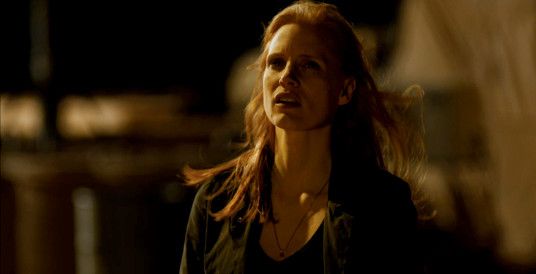
BEST ACTRESS IN A LEADING ROLE
Jessica Chastain (Zero Dark Thirty)
Adepero Oduye (Pariah)
Quvenzhané Wallis (Beasts of the Southern Wild)
Rachel Weisz (The Deep Blue Sea)
Michelle Williams (Take This Waltz)
Maya, a single-minded CIA agent, presents a major challenge to an actress. How do you add nuance to a character with virtually no back-story and scant personal life? The script for Zero Dark Thirty offers very little emotion for Chastain to work with, but she made it work beautifully. There's no pat psychoanalysis here, but you get a very real sense for who Maya is and why she's so guarded. The final scene of catharsis feels earned after following the character's struggles for 2.5 hours (spread across 10 years).
Williams is smart and subtle as a young wife in Take This Waltz, drawn from her affectionate husband and toward a brooding artist neighbor. In Pariah, Oduye creates a spot-on portrait of a young woman's awakening and search for acceptance in a world (and family) hostile toward what she represents. Wallis is a force to be reckoned with in Beasts of a Southern Wild. The movie's success rests largely on five year old's shoulders and more than game. Weisz is heartbreaking as an woman in the midst of a self-destructive spiral over in The Deep Blue Sea.
Honorable mention goes to Stephanie Sigman as an aspiring beauty queen thrust into the world of gang violence in Miss Bala; Linda Cardellini as a reservist struggling with a fractured home front and impending redeployment in Return; Tilda Swinton as the shell-shocked mother of a bad seed in We Need to Talk About Kevin.
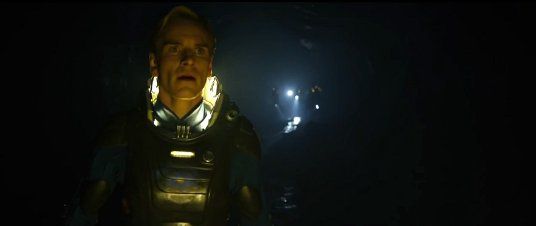
BEST ACTOR IN A SUPPORTING ROLE
Michael Fassbender (Prometheus)
James Gandolfini (Killing Them Softly)
Samuel L. Jackson (Django Unchained)
Tommy Lee Jones (Lincoln)
Seth Rogen (Take This Waltz)
Enigmatic and enchanting, Fassbender is perhaps the only living actor who could have successfully played a Peter O'Toole-obsessed android. In doing so, Fassbender steals every scene he's given in the overall disappointing "Alien" prequel Prometheus. There's so much complex stuff going on with this put-upon creation; it's ironic that the non-human is the most interesting character in the whole movie.
Gandolfini is revelatory as a hitman so full of booze and self-pity he can't shoot straight, or at all, in Killing Them Softly. As a strident abolitionist, Jones brings heart and humor to his handful of scenes in Lincoln. Jackson subverts the conventional master-slave dynamic with his funny and somewhat discomfiting role as the paternal house slave in Django Unchained. Rogen brings unexpected warmth and subtlety to his schlubby cookbook author husband in Take This Waltz.
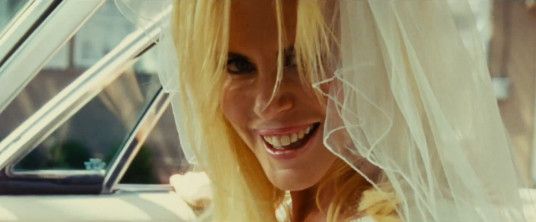
BEST ACTRESS IN A SUPPORTING ROLE
Gina Gershon (Killer Joe)
Macy Gray (The Paperboy)
Salma Hayek (Savages)
Nicole Kidman (The Paperboy)
Carey Mulligan (Shame)
For the first time in years, it feels like Kidman is really having fun with a role. Charlotte Bless, a death row groupie with a heart of gold, comes to the screen fully formed. There's some potentially embarrassing scenes in The Paperboy, scenes that would have fallen apart if any restraint had been exercised. Luckily, Kidman throws herself into the role with aplomb, making it all seem natural.
Few actors are ever asked, and fewer still are willing to go, to the places Gershon goes with her trailer trash stepmom in Killer Joe. Hayek is a hoot, and surprisingly heartfelt, as the leader of a drug cartel also struggling to connect with a spoiled college-age daughter in Savages. Gray shines in the under-written part of a plain-spoken maid in The Paperboy, infusing her with an inner life and a frank understanding of her place in that world. I wasn't as taken with the sex addiction drama Shame as most, but Mulligan's live-wire Sissy almost makes the two hours of hopeless melancholy worthwhile.
Honorable mention goes to Vanessa Redgrave as a fierce matriarch in the modern-day Shakespeare adaptation Coriolanus, Kim Wayans as a conflicted mom in Pariah and Sally Field as a believably bipolar Mary Todd Lincoln.
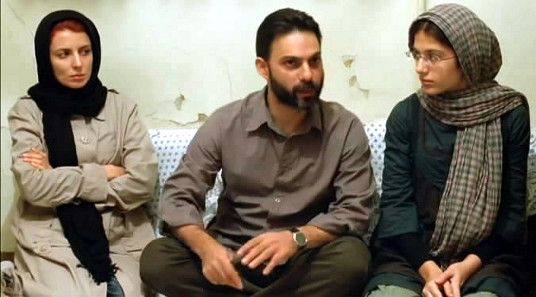
BEST ENSEMBLE PERFORMANCE
Another Happy Day
Moonrise Kingdom
The Paperboy
Once Upon a Time in Anatolia
A Separation
A Separation is one of those rare films that feels fully organic, as if the viewer is evesdropping on the struggles of real people. The movie falls on a continuum, presenting a poignant moment in the lives of characters with a past and future just off-screen. A lot of that magic can be attributed to filmmaker Asghar Farhadi, for sure, but he's assembled a fine cast--all unknown to western audiences--without a single weak link.
Other stellar ensembles include the group of old hands (Murray, McDormand, Norton, Willis) and talented newcomers (Gilman, Hayward) inhabiting Moonrise Kingdom; the motley crew (Efron, McConaughey, Kidman, Gray, Cusack) sweating it out in the Southern noir The Paperboy; the search party led by a killer back to the scene of the crime in Once Upon a Time in Anatolia; and the family from hell (Barkin, Burstyn, Haden Church, etc.) reuniting for a wedding in Another Happy Day.
BEST ORIGINAL SCREENPLAY
Wes Anderson and Roman Coppola (Moonrise Kingdom)
Mark Boal (Zero Dark Thirty)
Asghar Farhadi (A Separation)
Sarah Polley (Take This Waltz)
Joss Whedon and Drew Goddard (The Cabin in the Woods)
BEST ADAPTED SCREENPLAY
Lucy Alibar and Ben Zeitlin (Beasts of the Southern Wild)
Andrew Dominik (Killing Them Softly)
Tony Kushner (Lincoln)
Tom Stoppard (Anna Karenina)
Chris Terrio (Argo)
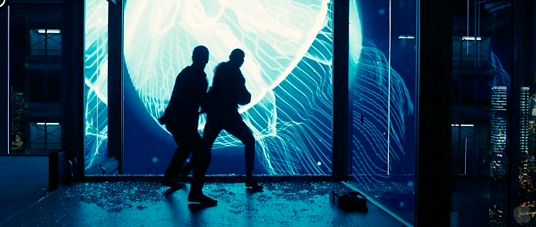
BEST CINEMATOGRAPHY
Roger Deakins (Skyfall)
Greig Fraser (Zero Dark Thirty)
Mihai Malaimare, Jr. (The Master)
Seamus McGarvey (Anna Karenina)
Gökhan Tiryaki (Once Upon a Time in Anatolia)
Skyfall is perhaps the most beautifully and cohesively shot Bond film ever made thanks to Deakins, shooting on digital for the first time. McGarvey's camera work is just one of the astonishing elements of Anna Karenina. Given the intricate set-ups, lighting must have been a daunting task. Malaimare uses the expansive canvas offered by 65 MM to create some of the year's most astonishing images in The Master. Tiryaki's cinematography makes clever use of space to create Once Upon a Time in Anatolia's unique atmosphere. Zero Dark Thirty's lengthy night sequences presented many technical challenges for Fraser.
Honorable mention goes to Bobby Bukowski for the L.A. atmospherics of Rampart, Bradford Young for the unique look and interesting club scenes in Pariah, and to McGarvey, again, aiding in the synesthesia of We Need to Talk about Kevin.
BEST EDITING
Joe Bini (We Need to Talk about Kevin)
William Goldenberg (Argo)
William Goldenberg and Dylan Tichenor (Zero Dark Thirty)
John Paul Horstmann and Brian A. Kates (Killing Them Softly)
Jeremiah O'Driscoll (Flight)
Goldenberg and Tichenor's cutting undoubtedly add to the suspense of Zero Dark Thirty, but they also know when to let a shot run long. Bini and O'Driscoll both rise to the occasion in technically challenging projects with We Need to Talk about Kevin and Flight, respectively. Goldenberg, showing up twice here, manages to maintain narrative clarity despite a complicated story and a large ensemble cast in Argo. Horstmann and Kates, meanwhile, adeptly handle both scenes of comedy and suspense in Killing Them Softly.
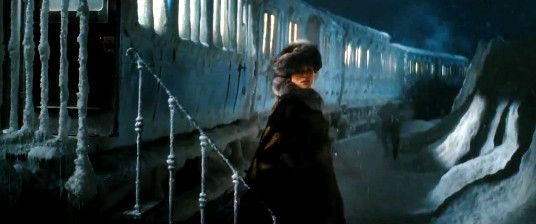
BEST PRODUCTION DESIGN
Laurence Bennett, Gregory S. Hooper, Austin Buchinsky and Robert Gould (The Artist)
Alex DiGerlando, Dawn Masi, Annie Evelyn and Erin Staub (Beasts of the Southern Wild)
Sarah Greenwood, Niall Moroney and Katie Spencer (Anna Karenina)
J. Michael Riva, David Klassen and Leslie Pope (Django Unchained)
Adam Stockhausen, Gerald Sullivan and Kris Moran (Moonrise Kingdom)
The sets of Anna Karenina are both aesthetically beautiful and technically brilliant, providing a literal stage on which the human tragedy plays out. Moonrise Kingdom and Django Unchained both add a touch of whimsy to their period settings. Beasts of the Southern Wild is by turns gritty and enchanting, but the sense of place is always there. The Artist does a fantastic job of aping the look of big-budget studio pictures from the late '20s and '30s.
BEST MUSIC SCORE
Alexandre Desplat (Moonrise Kingdom)
Dario Marianelli (Anna Karenina)
Max Richter (Perfect Sense)
Dan Romer and Benh Zeitlin (Beasts of the Southern Wild)
Bebo Valdés (Chico & Rita)
Marianelli's Anna Karenina score (sample) manages to be both sweeping and intimate in all the right places. Desplat's Moonrise Kingdom themes (sample), together with the other music chosen for the film, cast a magical spell. Richter burnishes the poignant melodrama of the apocalyptic Perfect Sense (sample). It's natural that Valdés should score a Chico & Rita, a film largely taken from his experiences as a Cuban jazz pianist; his score (sample) runs the gamut of emotions and styles. Romer and Zeitlin created a memorable and rousing theme (sample) for Beasts of the Southern Wild's young heroine.
BEST SONG
Adele and Paul Epworth for "Skyfall" (Skyfall)
Khaled Mouzanar for "Hashishet Albi" (Where Do We Go Now?)
Taylor Swift, Joy Williams, John Paul White and T-Bone Burnett for "Safe and Sound" (The Hunger Games)
Adele's "Skyfall" (listen here) may get all the glory -- and don't get me wrong, it's one of the better Bond themes -- but it's Khaled Mouzanar's pot anthem "Hashishet Albi" (listen here) that's stuck in my mind this year. Not only is the song a fun bit of aural confection; it also serves as more than just adornment for the opening credits. "Safe and Sound," a T-Bone Burnett production (listen here) that smartly paired Taylor Swift and The Civil Wars, is just a damn fine song.
BEST SOUND DESIGN
Flight
Killing Them Softly
Zero Dark Thirty
The sound of Zero Dark Thirty puts you there with Seal Team 6 through the use of very specific soundscapes. Flight crash sequence is among the best I've seen, due in no small part to the richly textured sound design. Killing Them Softly uses sound in interesting ways, incorporating radio chatter and political speeches to tell the story of a very specific time and place.
BEST VISUAL EFFECTS
The Dark Knight Rises
The Hobbit: An Unexpected Journey
Total Recall
Christopher Nolan knows how to combine CGI and practical effects to create a punchy action sequence, even if the rest of The Dark Knight Rises sags a bit. The Hobbit risks being old hat, but there's enough new stuff here to still inspire awe. When it came to wall-to-wall CGI spectacles this year, Total Recall was a step above the rest of the pack.

